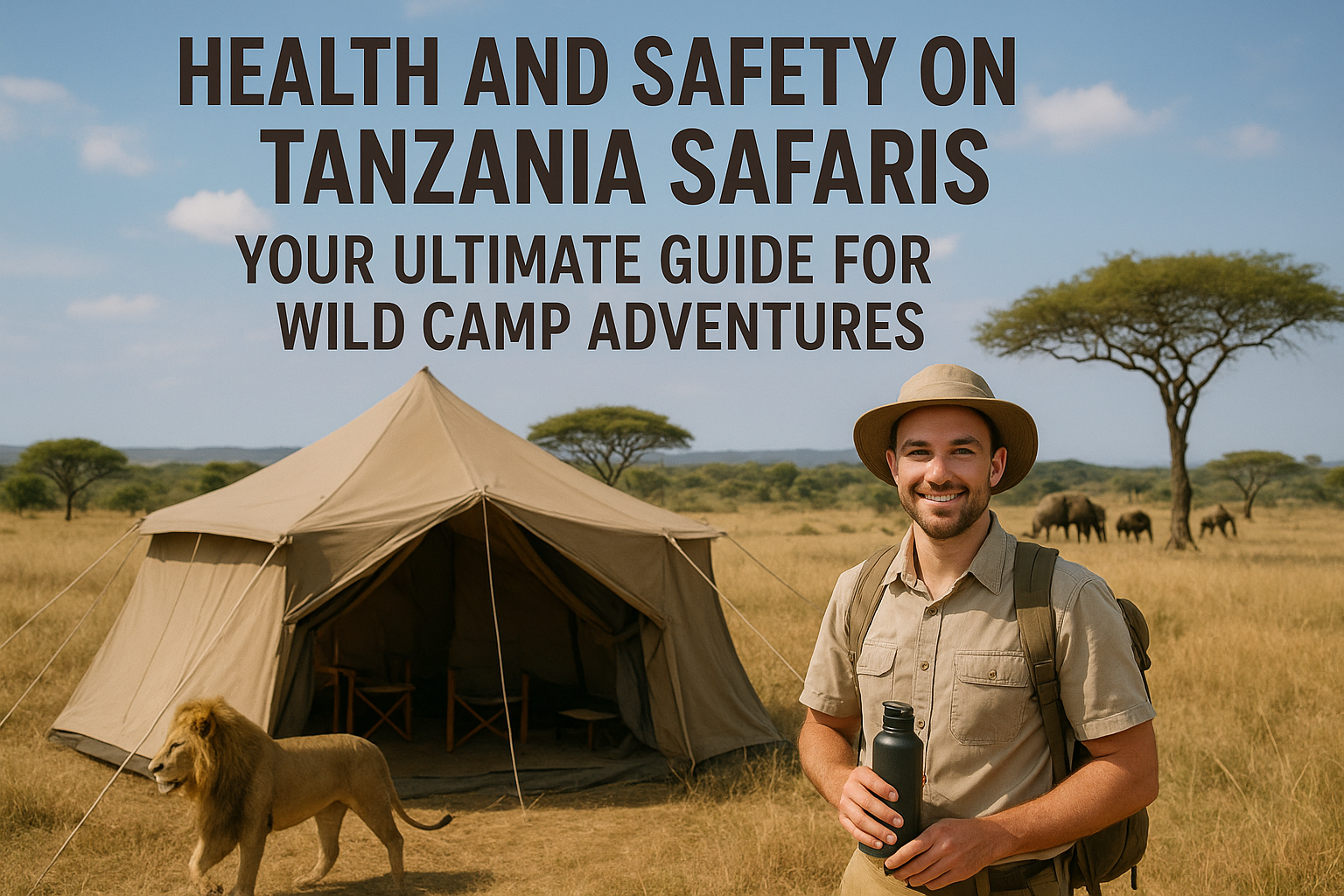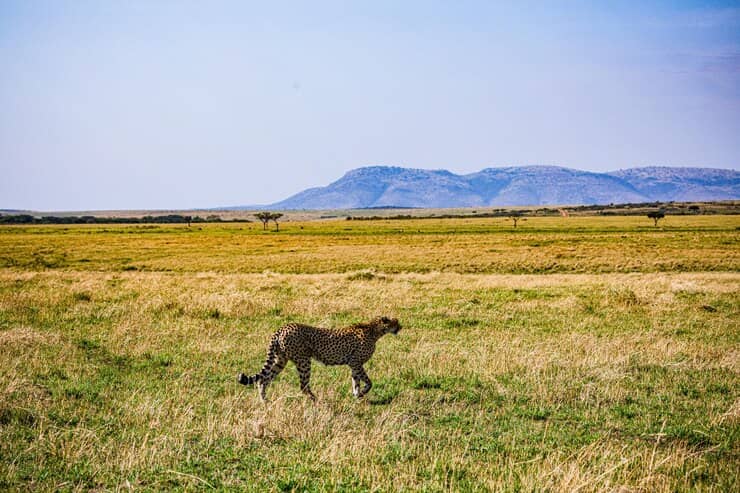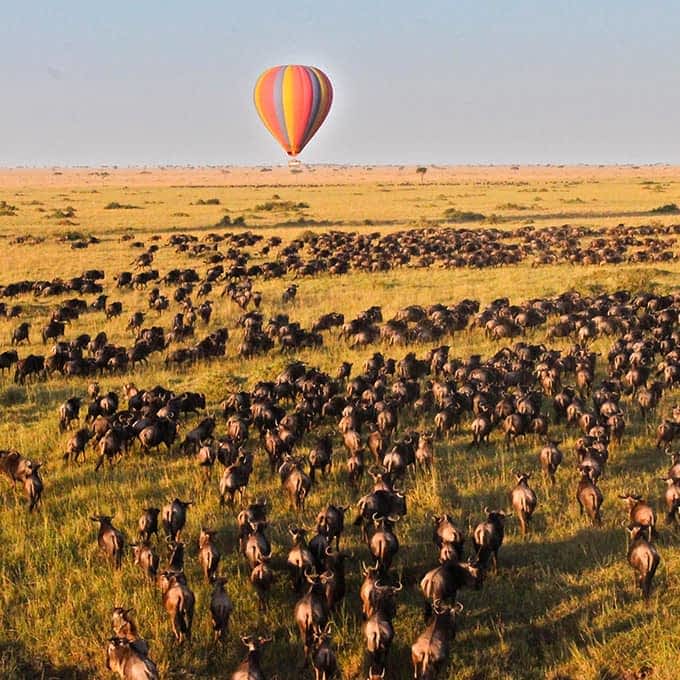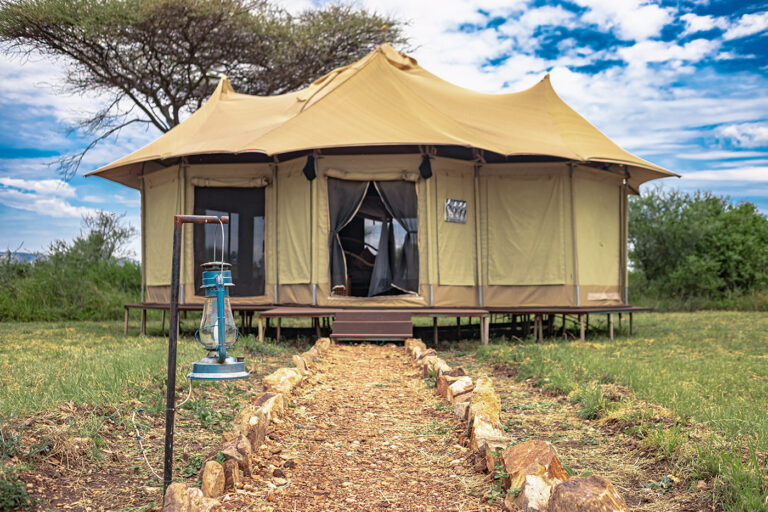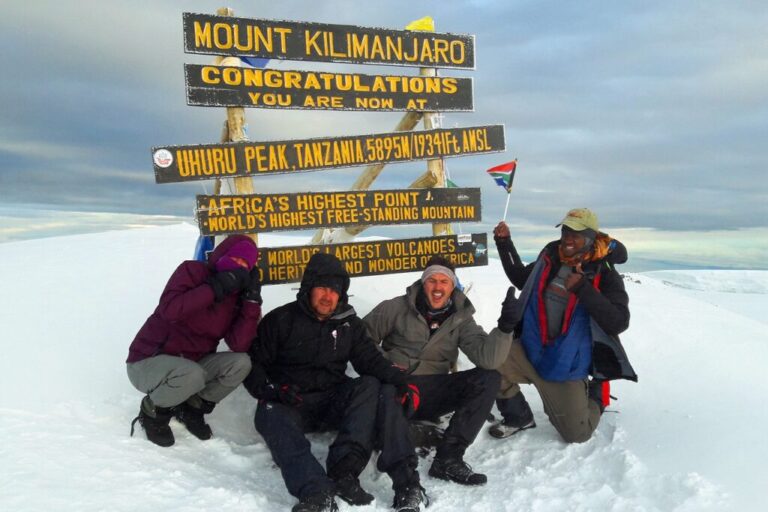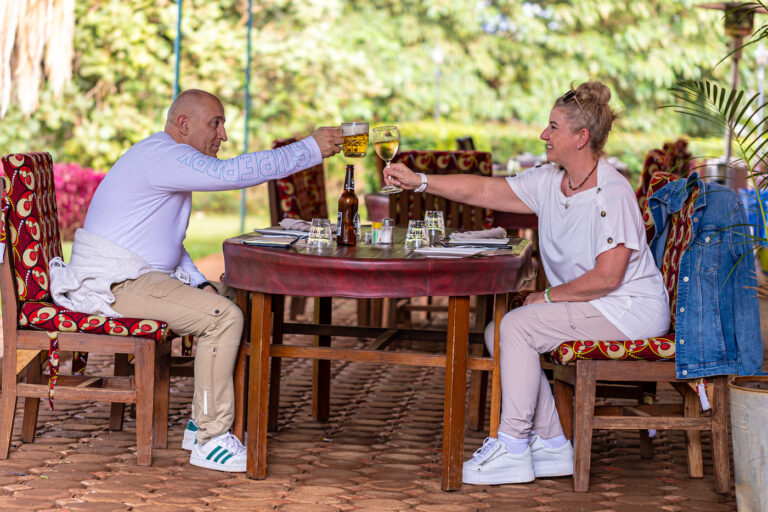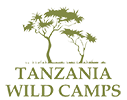Health and Safety on Tanzania Safaris
The Critical Importance of Health and Safety on Tanzania Safaris
Tanzania’s safari destinations are a paradise of biodiversity and breathtaking vistas, but their remote locations and natural challenges demand heightened awareness. Health risks such as altitude-related illnesses, tropical diseases, and sun exposure, combined with safety concerns like wildlife proximity and camp logistics, require proactive planning. For wild camp visitors, where medical facilities are hours away, preparation is not just advisable—it’s essential.
- Health Imperatives: Addressing altitude, infectious diseases, and environmental stressors protects your well-being.
- Safety Priorities: Mitigating wildlife risks, ensuring camp security, and preparing for emergencies are non-negotiable.
- Environmental Harmony: Responsible behavior preserves Tanzania’s ecosystems for future generations.
- Expert Support: Tanzania Wild Camps provides trained personnel, emergency protocols, and sustainable practices to enhance your safety.
With the right knowledge and support, your safari can be a seamless blend of adventure and security.
Comprehensive Safari Health Tips Tanzania
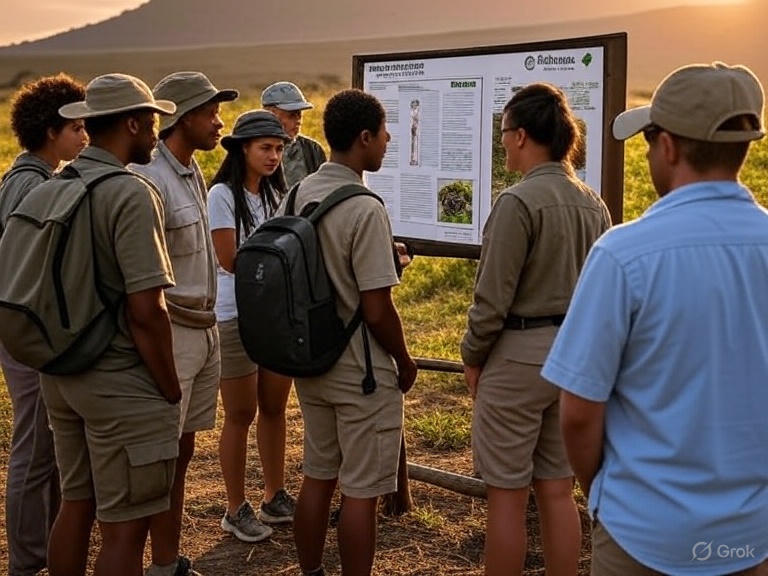
Maintaining optimal health during a Tanzanian safari involves tackling a range of environmental and biological challenges. Below are detailed safari health tips Tanzania to guide you:
- Mastering Altitude Acclimatization
- Challenge: Elevations like Kilimanjaro’s summit (5,895m) or Ngorongoro’s rim (2,200–2,800m) pose risks of acute mountain sickness (AMS), high-altitude pulmonary edema (HAPE), or cerebral edema (HACE).
- Symptoms: Mild cases include headaches and fatigue; severe symptoms involve shortness of breath or confusion.
- Strategies: Ascend gradually (e.g., add an acclimatization day at 3,950m on the Umbwe Route); hydrate with 3–4 liters of water daily; consider Diamox (125–250mg twice daily, with medical approval) starting 24 hours before ascent. Rest and avoid overexertion.
- Camp Support: Tanzania Wild Camps offers portable oxygen, acclimatization hikes, and guides trained to recognize distress signals.
- Protecting Against Sun and Heat
- Challenge: The equatorial climate delivers intense UV rays and temperatures of 30–35°C (86–95°F) in the dry season, peaking in the Serengeti.
- Risks: Sunburn, dehydration, heat exhaustion, or heatstroke, especially during long game drives.
- Strategies: Apply SPF 50+ sunscreen every 2–3 hours, wear UV-protective clothing (long sleeves, hats), and use polarized sunglasses. Drink water every 30 minutes (2–3 liters daily); carry electrolyte powders. Schedule outdoor activities from 6–10 AM or 4–6 PM.
- Camp Support: Shaded rest areas, hydration stations, and cooling tents at camps like Serengeti Safari Lodge.
- Preventing Insect-Borne Diseases
- Challenge: Mosquitoes (malaria, dengue) and tsetse flies (sleeping sickness) thrive, particularly in the green season (November–May) and near water sources.
- Risks: Fever, joint pain, or neurological symptoms if untreated; malaria remains a leading concern with 10–15% prevalence in rural areas.
- Strategies: Use DEET-based repellents (20–50%), sleep under permethrin-treated nets, and wear light-colored, long clothing. Take malaria prophylaxis (e.g., Malarone, Doxycycline) as prescribed. Avoid standing water or bushy areas during dusk/dawn.
- Camp Support: Insect-proof tents, mosquito coils, and anti-malarial consultations at Tanzania Wild Camps.
- Safeguarding Digestive Health
- Challenge: Unfamiliar cuisine and potential water contamination in remote wild camps can lead to traveler’s diarrhea or food poisoning.
- Risks: Dehydration, abdominal cramps, or prolonged discomfort.
- Strategies: Drink only bottled or boiled water; avoid ice, raw salads, or unpeeled fruits. Carry oral rehydration salts (ORS), anti-diarrheal meds (e.g., Imodium), and probiotics. Wash hands frequently with sanitizer.
- Camp Support: Hygienic cooking facilities and filtered water systems at all Tanzania Wild Camps locations.
- Ensuring Physical Readiness
- Challenge: Extended game drives (4–8 hours), treks, or camp setup can strain muscles, joints, or cardiovascular health.
- Risks: Sprains, fatigue, or exacerbation of pre-existing conditions.
- Strategies: Train for 8–12 weeks with cardio (e.g., 5km runs), strength (e.g., lunges with 10kg), and hill walks with a 10–15kg pack. Stretch daily and use trekking poles on uneven terrain. Pace yourself during activities.
- Camp Support: Ergonomic seating, rest zones, and optional massage therapy at premium camps.
Essential Vaccinations for Tanzania Safaris
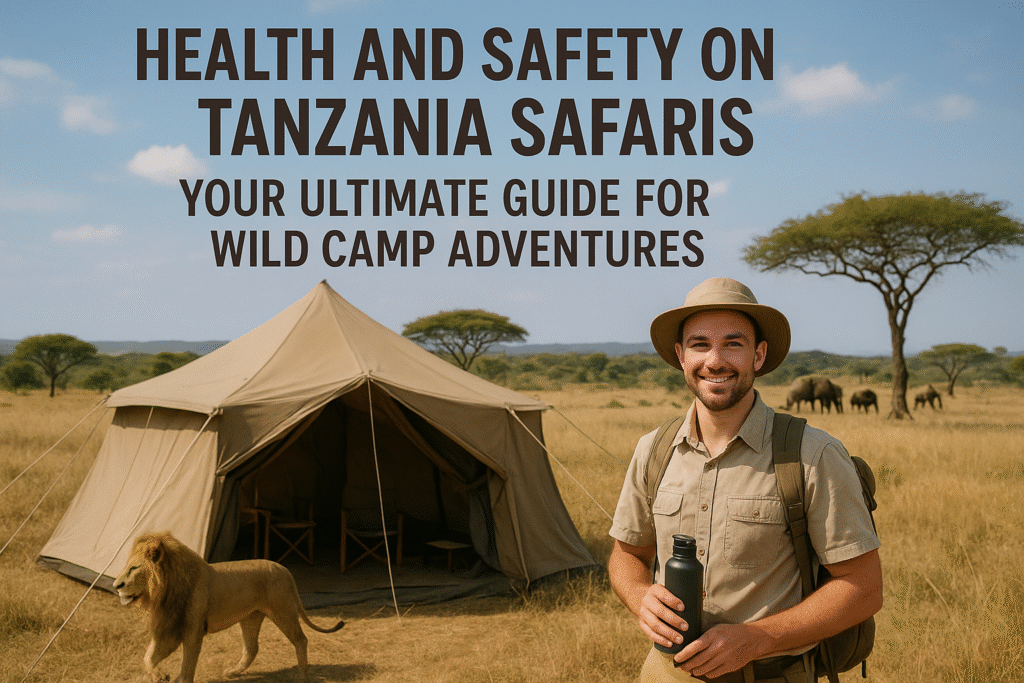
Vaccinations for Tanzania safaris are a cornerstone of health preparation, shielding you from preventable diseases prevalent in tropical and rural settings. Consult a travel health specialist 6–8 weeks prior.
Required and Highly Recommended Vaccines
- Yellow Fever: Mandatory for all travelers over 9 months if entering from an endemic area; recommended universally. Carry your International Certificate of Vaccination or Prophylaxis (ICVP).
- Typhoid: Critical due to food/water risks, with a single shot offering 2–3 years of protection.
- Hepatitis A: Essential for protection against contaminated food/water, with lifelong immunity post-vaccination.
- Hepatitis B: Advised for extended stays or potential medical/dental needs, given a 3-dose series.
- Tetanus, Diphtheria, Polio: Ensure boosters within the last 10 years; polio is rare but present in some regions.
- Rabies: Consider for off-trail treks or if you’ll handle animals; post-exposure treatment is costly and delayed in remote areas.
- Meningococcal Meningitis: Recommended for dry season travel (June–October) in northern Tanzania.
- Malaria Prophylaxis: Not a vaccine but vital; options include Malarone (daily), Doxycycline (daily), or Mefloquine (weekly)—consult your doctor based on duration and health profile.
Special Considerations
- Pregnancy: Avoid safaris if pregnant due to malaria and altitude risks; seek obstetric advice.
- Chronic Illnesses: Disclose conditions (e.g., asthma, diabetes) to Tanzania Wild Camps for customized support, including medication storage.
- Children: Vaccinate kids over 1 year (yellow fever); limit exposure with shorter drives and early camp returns.
- Allergies: Inform camps of food or insect allergies for tailored meals and first-aid kits.
Camp Health Infrastructure
- Tanzania Wild Camps equips all sites with first-aid stations, satellite phones, and partnerships with the Flying Doctors Society for rapid medical evacuations. Camps like Ngorongoro Wild Camp offer 24/7 nurse availability.
Ensuring Safety in Wild Camps
Safety in wild camps is a top priority, given the proximity to wildlife and isolation from urban amenities. Tanzania Wild Camps employs robust measures:
- Wildlife Encounter Safety
- Risks: Elephants, buffalo, or hyenas may approach camps, especially at night.
- Strategies: Remain in designated zones; follow “no feeding” and “no approaching” rules. Use flashlights and stay with guides after dark.
- Camp Support: Electric fencing at Serengeti Safari Lodge; nightly patrols and wildlife alerts at Ngorongoro Wild Camp.
- Camp Security Protocols
- Risks: Theft or intrusions in remote locations.
- Strategies: Lock tents and store valuables in camp safes. Travel in pairs and avoid solo outings at night.
- Camp Support: 24/7 security teams, monitored perimeters, and safe deposit boxes at all camps.
- Managing Environmental Hazards
- Risks: Bushfires during dry season or slippery trails in rains (March–May).
- Strategies: Adhere to fire bans; wear non-slip boots and use provided paths. Report hazards to staff.
- Camp Support: Firebreaks, weather forecasts, and emergency evacuation routes at Tanzania Wild Camps.
- Emergency Response Readiness
- Risks: Medical emergencies, vehicle breakdowns, or natural events.
- Strategies: Carry a personal first-aid kit (bandages, antiseptic, pain relievers); learn camp emergency signals (e.g., three whistle blasts).
- Camp Support: Radio communication, GPS trackers, and Flying Doctors access for airlifts within 2–4 hours.
- Travel and Transport Safety
- Risks: Rough roads or delays to/from camps.
- Strategies: Choose reputable operators like Tanzania Wild Camps; wear seatbelts and avoid night drives.
- Camp Support: Scheduled, insured transfers with experienced drivers and backup vehicles.
Advanced Planning Tips
Optimal Travel Seasons
- Dry Season (June–October): Lower disease prevalence, stable camp conditions; ideal as of now.
- Green Season (November–May): Lush scenery and fewer crowds; avoid heavy rains (March–May) for mobility.
Comprehensive Packing List
- Health: Prescription meds, ORS, insect repellent, altitude sickness tablets, sunglasses.
- Safety: Headlamp, whistle, waterproof bag, multi-tool.
- Clothing: Long-sleeve shirts, quick-dry pants, hat, sturdy boots.
Booking with Tanzania Wild Camps
- Visit tanzaniawildcamps.com/book-now for health-optimized itineraries.
- Reserve 6–12 months in advance, especially for peak season, to secure safety resources.
Frequently Asked Questions (FAQs)
What are the top health tips for Tanzania safaris?
Focus on safari health tips Tanzania like hydration, sun protection, and insect avoidance.
Which vaccinations are essential for safaris?
Vaccinations for Tanzania safaris include yellow fever (mandatory), typhoid, hepatitis A, and malaria prophylaxis.
How safe are wild camps in Tanzania?
Safety in wild camps is robust with fencing, patrols, and emergency plans at Tanzania Wild Camps.
Can families with young children join safaris?
Yes, with extra health precautions; consult Tanzania Wild Camps for child-friendly options.
How do I plan a safe safari trip?
Book through tanzaniawildcamps.com for comprehensive safety support.
Mastering safari health tips Tanzania, securing vaccinations for Tanzania safaris, and ensuring safety in wild camps transforms your adventure into a safe haven of discovery. With Tanzania Wild Camps, embrace the wild with confidence and care. Start planning your 2025 or 2026 journey today at tanzaniawildcamps.com, and step into Tanzania’s wilderness.


